The Shutdown Senate Vote
The shutdown rolls on, and Senate Majority Leader John Thune has already said it is unlikely the Senate will vote this weekend. That means the government shutdown will extend into next week unless something changes Friday morning. He criticized Democrats for demanding an extension of the Affordable Care Act subsidies in the stopgap bill and insisted negotiations must begin only once the government reopens. Minority Leader Chuck Schumer is predicting GOP unity will falter as the shutdown drags on, but I’m not convinced.
From where I sit, the numbers tell the story. Three Democrats voted with Republicans last time. Rand Paul opposes continuing resolutions, so Republicans will need eight Democrats to reach 60 votes because J.D. Vance is the tie breaker. Every time the Senate votes, I’m watching to see if more than three Democrats side with Republicans — that’s the real signal of where this is going.
I don’t believe Democrats are built for shutdowns. They’re posturing as if they’re ready to see this through, but the longer it goes the more likely rank and file members will embarrass Chuck Schumer into ending it. The real pain — furloughs, firings, and cuts to the federal workforce — is only going to show up if this lasts into next week. That’s when the Russ Vought part of the story kicks in, and that’s when this gets serious.
Politics Politics Politics is a reader-supported publication. To receive new posts and support my work, consider becoming a free or paid subscriber.
Abigail Spanberger in Virginia
Former Representative Abigail Spanberger is leading Virginia Lieutenant Governor Winsome Earl Sears by 10 points in the governor’s race, 52 to 42, according to a new Emerson College and Hill survey conducted September 28 and 29. Early voting is already underway with more than 146,000 ballots cast. Among those voters, Spanberger leads 60 to 38 and still holds a 50 to 43 edge among those yet to vote.
Her gains have come from independents, men, and younger voters. Independents back her by 19 points, men are evenly split, and voters under 50 favor her by 27 points. History suggests the party that is not in the White House usually wins the Virginia governor’s race. Based on that, I’d bet Spanberger, even though this isn’t exactly an electric matchup.
The only real advantage Sears has is the men’s and women’s sports issue — a culture war topic, not a kitchen table one. I don’t think that will be enough, especially in Northern Virginia, which is heavily government dependent and angry at the president. Add on Sears not being a great candidate and Spanberger looks far stronger heading into November.
Bailouts are Back
Treasury Secretary Scott Bessent says the Trump administration will announce substantial support for U.S. farmers next week, likely funded by tariff revenue. Soybean growers have been hit hard as China has halted U.S. purchases during their trade war. Bessent accused Beijing of using farmers as hostages in negotiations but pledged aid, noting their loyalty to Trump.
He discussed the plan with the president and Agriculture Secretary Brooke Rollins, but details and costs remain unclear. Argentina’s discounted soybean sales to China have undercut U.S. farmers and stoked tension. Bailouts are back, and this is classic Trump — he’s never been a fiscal hawk and has no problem using the federal government’s pocketbook to shape the world as he sees fit.
That’s where things stand. Farmers are hurting, the administration is signaling payouts, and we’ll see next week how big the support really is.
Chapters
00:00:00 - Intro and Synagogue Shooting
00:03:47 - Interview with Gloria Young
00:34:28 - Update
00:34:44 - Shutdown
00:38:08 - Abigail Spanberger
00:40:18 - Farmers
00:41:49 - Interview with Gloria Young (con’t)
01:03:18 - Wrap-up
This is a public episode. If you'd like to discuss this with other subscribers or get access to bonus episodes, visit www.politicspoliticspolitics.com/subscribe
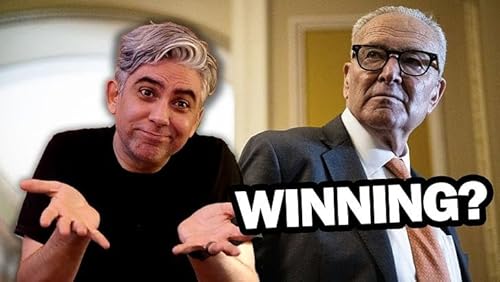 50 m
50 m 1 h y 7 m
1 h y 7 m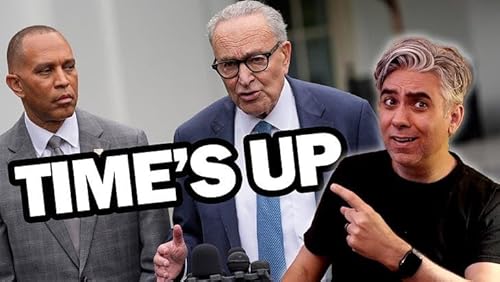 1 h y 19 m
1 h y 19 m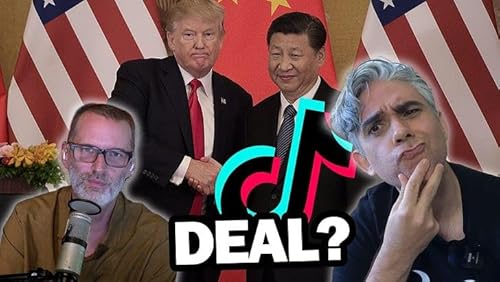 59 m
59 m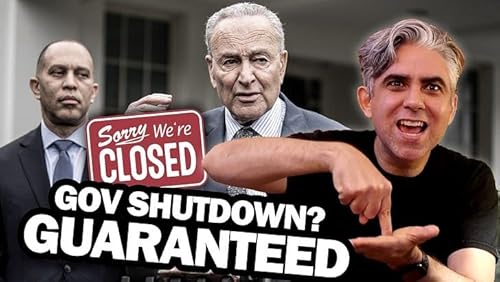 1 h y 28 m
1 h y 28 m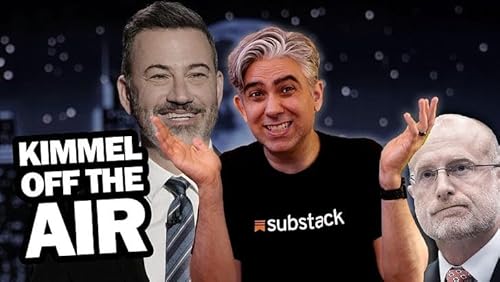 Sep 18 20251 h y 47 m
Sep 18 20251 h y 47 m Sep 17 20252 h y 1 m
Sep 17 20252 h y 1 m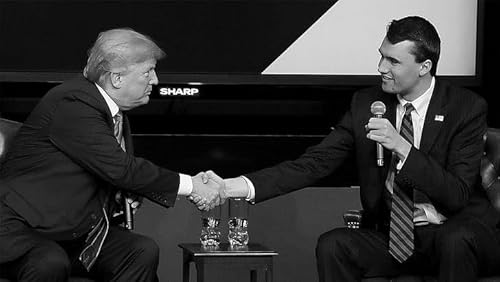 Sep 11 202540 m
Sep 11 202540 m

